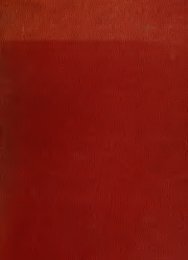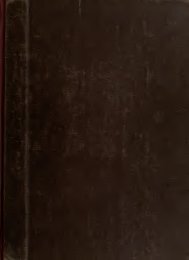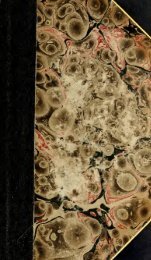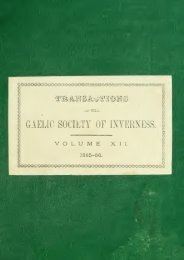- Page 2 and 3: c C c
- Page 7 and 8: THE CELTIC MAGAZINE: l l JV JBflttt
- Page 9 and 10: CONTENTS, PAGE. History of the Clan
- Page 11 and 12: THE CELTIC MAGAZINE. No. XXXVII. NO
- Page 13 and 14: THE CELTIC MAGAZINE. 3 In 1651, aft
- Page 15 and 16: THE CELTIC MAGAZINE. guish him from
- Page 17 and 18: THE CELTIC MAGAZINE. in Inverness,
- Page 19 and 20: THE CELTIC MAGAZINE. they were assi
- Page 21 and 22: THE CELTIC MAGAZINE. ll social weal
- Page 23 and 24: THE CELTIC MAGAZINE. 13 FAIKIES IN
- Page 25 and 26: THE CELTIC MAGAZINE. 15 pensively a
- Page 27 and 28: THE CELTIC MAGAZINE. 17 all weather
- Page 29: THE CELTIC MAGAZINE. 19 GAELIC AND
- Page 33 and 34: THE CELTIC MAGAZINE. 23 HACO, THE D
- Page 35 and 36: THE CELTIC MAGAZINE. 25 not been st
- Page 37 and 38: THE CELTIC MAGAZINE. 27 failed to m
- Page 39 and 40: THE CELTIC MAGAZINE. 29 may ever de
- Page 41 and 42: THE CELTIC MAGAZINE. 31 have escape
- Page 43 and 44: THE CELTIC MAGAZINE. 33 mantle;"* a
- Page 45 and 46: THE CELTIC MAGAZINE. DIRECTORY OF H
- Page 47 and 48: THE CELTIC MAGAZINE. 37 THE LONDON"
- Page 49 and 50: THE CELTIC MAGAZINE. WILLIAM JOLLY,
- Page 51 and 52: THE CELTIC MAGAZINE. No. XXXVIII. D
- Page 53 and 54: THE CELTIC MAGAZINE. 43 Union, and,
- Page 55 and 56: THE CELTIC MAGAZINE. 45 across the
- Page 57 and 58: THE CELTIC MAGAZINE. 47 Marischal,
- Page 59 and 60: THE CELTIC MAGAZINE. 49 HACO, THE D
- Page 61 and 62: THE CELTIC MAGAZINE. 51 " Grant you
- Page 63 and 64: THE CELTIC MAGAZINE. 53 grasping it
- Page 65 and 66: THE CELTIC MAGAZINE. 55 If we ask f
- Page 67 and 68: THE CELTIC MAGAZINE. 57 both sank t
- Page 69 and 70: THE CELTIC MAGAZINE. 59 of the bank
- Page 71 and 72: THE CELTIC MAGAZINE. 61 preyed on h
- Page 73 and 74: THE CELTIC MAGAZINE. 63 she evident
- Page 75 and 76: THE CELTIC MAGAZINE. 65 AN SEILLEAN
- Page 77 and 78: THE CELTIC MAGAZIKE. 67 An uin' a'
- Page 79 and 80: THE CELTIC MAGAZINE. 69 Fernate Glt
- Page 81 and 82:
THE CELTIC MAGAZINE. 71 tical Accou
- Page 83 and 84:
THE CELTIC MAGAZINE. 73 "Si se Mac
- Page 85 and 86:
THE CELTIC MAGAZINE. 75 PRINCE CHAR
- Page 87 and 88:
THE CELTIC MAGAZINE. 77 literature.
- Page 89 and 90:
THE CELTIC MAGAZINE. 79 and is conc
- Page 91 and 92:
THE CELTIC MAGAZINE. No. XXXIX. JAN
- Page 93 and 94:
THE CELTIC MAGAZINE. 83 tion to the
- Page 95 and 96:
THE CELTIC MAGAZINE. 85 the most di
- Page 97 and 98:
THE CELTIC MAGAZINE. 87 Loch Carron
- Page 99 and 100:
THE CELTIC MAGAZINE. 89 very unlike
- Page 101 and 102:
* THE CELTIC MAGAZltfE. 91 M A E Y
- Page 103 and 104:
THE CELTIC MAGAZINE. 93 as a God of
- Page 105 and 106:
THE CELTIC MAGAZINE. 95 marr the pl
- Page 107 and 108:
THE CELTIC MAGAZINE. 97 Skye severa
- Page 109 and 110:
THE CELTIC MAGAZINE. 99 OUE GAELIC
- Page 111 and 112:
THE CELTIC MAGAZINE. 101 ledge, by
- Page 113 and 114:
THE CELTIC MAGAZINE. 103 B R A H A
- Page 115 and 116:
THE CELTIC MAGAZINE. 105 HACO, THE
- Page 117 and 118:
THE CELTIC MAGAZINE. 107 was lying
- Page 119 and 120:
THE CELTIC MAGAZINE. 109 The man's
- Page 121 and 122:
" 'But?' Why " Cannot it ? Nay, THE
- Page 123 and 124:
THE CELTIC MAGAZINE. 113 Then she d
- Page 125 and 126:
THE CELTIC MAGAZINE. 115 FIRST HIGH
- Page 127 and 128:
THE CELTIC MAGAZINE. 117 mendations
- Page 129 and 130:
TliE CELTIC MAGAZINE. 119 chairman
- Page 131 and 132:
THE No. XL. FEBRUARY 1879. VOL. IV.
- Page 133 and 134:
THE CELTIC MAGAZINE. 123 ousies and
- Page 135 and 136:
THE CELTIC MAGAZINE. 125 of London
- Page 137 and 138:
THE CELTIC MAGAZINE. 127 He was sav
- Page 139 and 140:
THE CELTIC MAGAZINE. 129 A LEGEND O
- Page 141 and 142:
THE CELTIC MAGAZINE. 131 sight of h
- Page 143 and 144:
THE CELTIC MAGAZINE. up the room, h
- Page 145 and 146:
THE CELTIC MAGAZINE. 135 Box. Latin
- Page 147 and 148:
THE CELTIC MAGAZINE. 137 fir. He sa
- Page 149 and 150:
THE CELTIC MAGAZINE. 139 of hazel t
- Page 151 and 152:
THE CELTIC MAGAZINE. 141 OUR GAELIC
- Page 153 and 154:
THE CELTIC MAGAZINE. U3 and the two
- Page 155 and 156:
THE CELTIC MAGAZINE. 145 check the
- Page 157 and 158:
THE CELTIC MAGAZINE. 147 'N uair dh
- Page 159 and 160:
THE CELTIC MAGAZIKE. 149 knew perfe
- Page 161 and 162:
THE CELTIC MAGAZINE. 151 Banks, con
- Page 163 and 164:
THE CELTIC MAGAZINE. THE GAELIC SOC
- Page 165 and 166:
THE CELTIC MAGAZINE. 155 ptentture.
- Page 167 and 168:
.THE CELTIC MAGAZINE. 157 our own G
- Page 169 and 170:
THE CELTIC MAGAZINE. affinities : S
- Page 171 and 172:
THE CELTIC MAGAZINE. No. XLI. MAECH
- Page 173 and 174:
THE CELTIC MAGAZINE. 163 Kenneth M6
- Page 175 and 176:
THE CELTIC MAGAZINE. 165 in the thi
- Page 177 and 178:
THE CELTIC MAGAZINE. Lieutenant-Col
- Page 179 and 180:
THE CELTIC MAGAZINE. 169 His Lordsh
- Page 181 and 182:
THE CELTIC MAGAZINE. 171 They all d
- Page 183 and 184:
THE CELTIC MAGAZINE. 173 THE GAELIC
- Page 185 and 186:
THE CELTIC MAGAZINE. 175 ful degree
- Page 187 and 188:
THE CELTIC MAGAZINE. 177 yew trees,
- Page 189 and 190:
THE CELTIC MAGAZINE. 179 MOTHER OF
- Page 191 and 192:
THE CELTIC MAGAZINE. 181 CAPTAIN ER
- Page 193 and 194:
" Thus, then, I would class them :
- Page 195 and 196:
THE CELTIC MAGAZINE. 185 learned th
- Page 197 and 198:
THE CELTIC MAGAZINE. 187 GENEALOGIC
- Page 199 and 200:
THE CELTIC MAGAZINE. 189 high-class
- Page 201 and 202:
THE CELTIC HA.GAZINE. 191 not by Sm
- Page 203 and 204:
THE CELTIC MAGAZINE. 193 whom devol
- Page 205 and 206:
THE CELTIC MAGAZINE. 195 Not many S
- Page 207 and 208:
THE CELTIC MAGAZINE. 19? /iterate*.
- Page 209 and 210:
THE CELTIC MAGAZINE. 199 their grat
- Page 211 and 212:
THE CELTIC MAGAZINE. No. XLIF. APRI
- Page 213 and 214:
THE CELTIC MAGAZINE. 203 by the lat
- Page 215 and 216:
THE CELTIC MAGAZINE. 205 Kenneth, t
- Page 217 and 218:
THE CELTIC MAGAZINE. 207 He married
- Page 219 and 220:
THE CELTIC MAGAZINE. 209 Mackenzie
- Page 221 and 222:
THE CELTIC MAGAZINE. 211 mont of hi
- Page 223 and 224:
THE CELTIC MAGAZINE. 213 Dumbarton.
- Page 225 and 226:
THE CELTIC MAGAZIKE. 215 of schools
- Page 227 and 228:
THE CELTIC MAGAZINE. 217 Will the r
- Page 229 and 230:
THE CELTIC MAGAZINE. 219 it will no
- Page 231 and 232:
THE CELTIC MAGAZINE. 221 called alo
- Page 233 and 234:
THE CELTIC MAGAZINE, 223 very hands
- Page 235 and 236:
THE CELTIC MAGAZINE. 225 not killed
- Page 237 and 238:
THE CELTIC MAGAZINE. 227 GENEALOGIC
- Page 239 and 240:
THE CELTIC MAGAZINE. 229 ing an est
- Page 241 and 242:
THE CELTIC MAGAZINE. 231 nians that
- Page 243 and 244:
. . . An THE CELTIC MAGAZINE. 233 E
- Page 245 and 246:
THE CELTIC MAGAZINE. 235 In latter
- Page 247 and 248:
THE CELTIC MAGAZIKE. 237 literature
- Page 249 and 250:
A jf THE CELTIC MAGAZINE. 239 I
- Page 251 and 252:
THE CELTIC MAGAZINE. No. XLIIL MAY,
- Page 253 and 254:
THE CELTIC MAGAZINE. And bid the st
- Page 255 and 256:
THE CELTIC MAGAZINE. 245 says that
- Page 257 and 258:
THE CELTIC MAGAZINE. Of waterfalls
- Page 259 and 260:
THE CELTIC MAGAZINE. 249 HISTORY OF
- Page 261 and 262:
THE CELTIC MAGAZINE. 251 X. ALEXAND
- Page 263 and 264:
THE CELTIC MAGAZINE. 253 1696, 1 71
- Page 265 and 266:
THE CELTIC MAGAZINE. Mackenzie, XI.
- Page 267 and 268:
THE CELTIC MAGAZINE. 257 2. John Pe
- Page 269 and 270:
THE CELTIC MAGAZINE. 259 CUE GAELIC
- Page 271 and 272:
THE CELTIC MAGAZINE. 261 been made,
- Page 273 and 274:
THE CELTIC MAGAZINE. 263 older peop
- Page 275 and 276:
THE CELTIC MAGAZINE. extracts from
- Page 277 and 278:
THE CELTIC MAGAZINE. 267 which his
- Page 279 and 280:
THE CELTIC MAGAZINE. 269 Macdougall
- Page 281 and 282:
THE CELTIC MAGAZINE. 271 lias any c
- Page 283 and 284:
THE CELTIC MAGAZIKE. 273 family. Th
- Page 285 and 286:
most distasteful to her ; THE CELTI
- Page 287 and 288:
THE CELTIC MAGAZINE. 277 After a wh
- Page 289 and 290:
THE CELTIC MAGAZINE. 279 training q
- Page 291 and 292:
THE No. XLIV. JUNE, 1879. - VOL. IV
- Page 293 and 294:
THE CELTIC MAGAZINE. 283 of being l
- Page 295 and 296:
THE CELTIC MAGAZINE. 285 for precio
- Page 297 and 298:
THE CELTIC MAGAZINE. 287 summer nig
- Page 299 and 300:
THE CELTIC MAGAZINE. 289 the mainla
- Page 301 and 302:
THE CELTIC MAGAZINE. 291 HISTORY OF
- Page 303 and 304:
THE CELTIC MAGAZINE. 293 nor in any
- Page 305 and 306:
THE CELTIC MAGAZINE. 295 cariage an
- Page 307 and 308:
THE CELTIC MAGAZINE. 297 roborate t
- Page 309 and 310:
THE CELTIC MAGAZINE. 299 to have ob
- Page 311 and 312:
THE CELTIC MAGAZINE. 301 of Macleod
- Page 313 and 314:
THE CELTIC MAGAZINE. 303 years ago
- Page 315 and 316:
THE CELTIC MAGAZINE. 305 postscript
- Page 317 and 318:
THE CELTIC MAGAZINE. 307 GENEALOGIC
- Page 319 and 320:
THE CELTIC MAGAZINE. 309 Lady Eliza
- Page 321 and 322:
THE CELTIC MAGAZINE. 311 JOHN MACKA
- Page 323 and 324:
THE CELTIC MAGAZINE. 313 3 heer off
- Page 325 and 326:
THE CELTIC MAGAZINE. 315 moved, aro
- Page 327 and 328:
THE CELTIC MAGAZINE. 317 EEMNANTS O
- Page 329 and 330:
THE CELTIC MAGAZINE. 319 Corp seang
- Page 331 and 332:
THE No. XLV. JULY, 1879. VOL. IV. M
- Page 333 and 334:
THE CELTIC MAGAZINE. 323 the men. Y
- Page 335 and 336:
THE CELTIC MAGAZINE. 325 the 5th Ap
- Page 337 and 338:
THE CELTIC MAGAZINE. 327 that he re
- Page 339 and 340:
THE CELTIC MAGAZINE. 329 skirts. He
- Page 341 and 342:
THE CELTIC MAGAZINE, 331 Strong as
- Page 343 and 344:
THE CELTIC MAGAZINE. 333 battery wi
- Page 345 and 346:
THE CELTIC MAGAZINE. 335 " Fat for
- Page 347 and 348:
THE CELTIC MAGAZINE. 337 HISTOEY OF
- Page 349 and 350:
THE CELTIC MAGAZINE. 339 In 1606 Jo
- Page 351 and 352:
THE CELTIC MAGAZINE. 341 danger, th
- Page 353 and 354:
THE CELTIC MAGAZINE. 343 the sons d
- Page 355 and 356:
THE CELTIC MAGAZINE. 345 daughter o
- Page 357 and 358:
THE CELTIC MAGAZINE. 347 OUE GAELIC
- Page 359 and 360:
THE CELTIC MAGAZINE. 349 every sepa
- Page 361 and 362:
THE CELTIC MAGAZINE. 351 be the mea
- Page 363 and 364:
THE CELTIC MAGAZINE, 353 the sense,
- Page 365 and 366:
THE CELTIC MAGAZINE. 355 JAMIE GOW,
- Page 367 and 368:
THE CELTIC MAGAZINE. 357 known chan
- Page 369 and 370:
THE CELTIC MAGAZINE. 359 Sketches o
- Page 371 and 372:
THE CELTIC MAGAZINE. No. XL VI. AUG
- Page 373 and 374:
THE CELTIC MAGAZINE. 363 pected of
- Page 375 and 376:
THE CELTIC MAGAZINE. 365 of a dense
- Page 377 and 378:
THE CELTIC MAGAZINE. 367 The future
- Page 379 and 380:
THE CELTIC MAGAZINE. 369 He had two
- Page 381 and 382:
THE CELTIC MAGAZINE. 371 Ma's fhior
- Page 383 and 384:
THE CELTIC MAGAZINE. 373 X. RAONULL
- Page 385 and 386:
THE CELTIC MAGAZINE. 375 " Dh'fhiac
- Page 387 and 388:
THE CELTIC MAGAZINE. 377 I am convi
- Page 389 and 390:
THE CELTIC MAGAZINE. 379 life enjoi
- Page 391 and 392:
THE CELTIC MAGAZINE. 381 OLomxipori
- Page 393 and 394:
THE CELTIC MAGAZINE. 383 of the Soc
- Page 395 and 396:
THE CELTIC MAGAZINE. 385 the import
- Page 397 and 398:
THE CELTIC MAGAZINE. 387 ing his an
- Page 399 and 400:
THE CELTIC MAGAZINE. 389 I have not
- Page 401 and 402:
THE CELTIC MAGAZINE. 391 THE GAELIC
- Page 403 and 404:
THE CELTIC MAGAZINE. 393 by higher
- Page 405 and 406:
THE CELTIC MAGAZINE. 395 money in t
- Page 407 and 408:
THE CELTIC MAGAZIKE. 397 old gospel
- Page 409 and 410:
THE CELTIC MAGAZINE. 399 MARY MACKE
- Page 411 and 412:
THE CELTIC MAGAZINE. No. XLVII. . S
- Page 413 and 414:
THE CELTIC MAGAZINE. 403 his hand b
- Page 415 and 416:
THE CELTIC MAGAZINE. 405 the hills
- Page 417 and 418:
THE CELTIC MAGAZINE. 407 ing afar o
- Page 419 and 420:
THE CELTIC MAGAZINE. 409 HISTOEY OF
- Page 421 and 422:
THE CELTIC MAGAZINE. 411 Alexander
- Page 423 and 424:
trose. By his marriage he had 1. Al
- Page 425 and 426:
THE CELTIC MAGAZINE. ling caught by
- Page 427 and 428:
THE CELTIC MAGAZINE. 417 THE SCOTTI
- Page 429 and 430:
THE CELTIC MAGAZINE. 419 brought lo
- Page 431 and 432:
THE CELTIC MAGAZINE. 421 treatment.
- Page 433 and 434:
THE CELTIC MAGAZINE. 423 proposes t
- Page 435 and 436:
THE CELTIC MAGAZINE. 425 hereafter)
- Page 437 and 438:
THE CELTIC MAGAZINE. 427 " Item, A
- Page 439 and 440:
THE CELTIC MAGAZINE. 429 the foresa
- Page 441 and 442:
THE CELTIC MAGAZINE. 431 WILLIAM GK
- Page 443 and 444:
THE CELTIC MAGAZINE. 433 by suggest
- Page 445 and 446:
THE CELTIC MAGAZINE. 435 He entered
- Page 447 and 448:
THE CELTIC MAGAZINE. 437 INVERNESS
- Page 449 and 450:
THE CELTIC MAGAZINE, 439 " Second W
- Page 451 and 452:
THE CELTIC MAGAZINE. No. XLVIII. OC
- Page 453 and 454:
THE CELTIC MAGAZINE. 443 appointmen
- Page 455 and 456:
THE CELTIC MAGAZINE. 445 Ah ! ne'er
- Page 457 and 458:
THE CELTIC MAGAZINE. 447 but some f
- Page 459 and 460:
THE CELTIC MAGAZINE. 449 instances
- Page 461 and 462:
THE CELTIC MAGAZINE. 451 the better
- Page 463 and 464:
THE CELTIC MAGAZINE. 453 WILLIAM GK
- Page 465 and 466:
THE CELTIC MAGAZINE. 455 mean ? Wer
- Page 467 and 468:
THE CELTIC MAGAZINE. Naturally his
- Page 469 and 470:
THE CELTIC MAGAZINE. 459 mistaken,"
- Page 471 and 472:
THE CELTIC MAGAZINE. 461 but from t
- Page 473 and 474:
" Mark xiv. 4. For ' introduced int
- Page 475 and 476:
THE CELTIC MAGAZINE. 465 culation i
- Page 477 and 478:
THE CELTIC MAGAZINE. 467 But really
- Page 479 and 480:
THE CELTIC MAGAZINE. 469 At the nor
- Page 481 and 482:
THE CELTIC MAGAZINE. 471 a deer for
- Page 483 and 484:
THE CELTIC MAGAZINE. 473 soon be an
- Page 485 and 486:
THE CELTIC MAGAZINE. 475 FOLK-LOKE
- Page 490 and 491:
* >^> ^ > > > ;" >> >-^ > ^> >> ^-^









